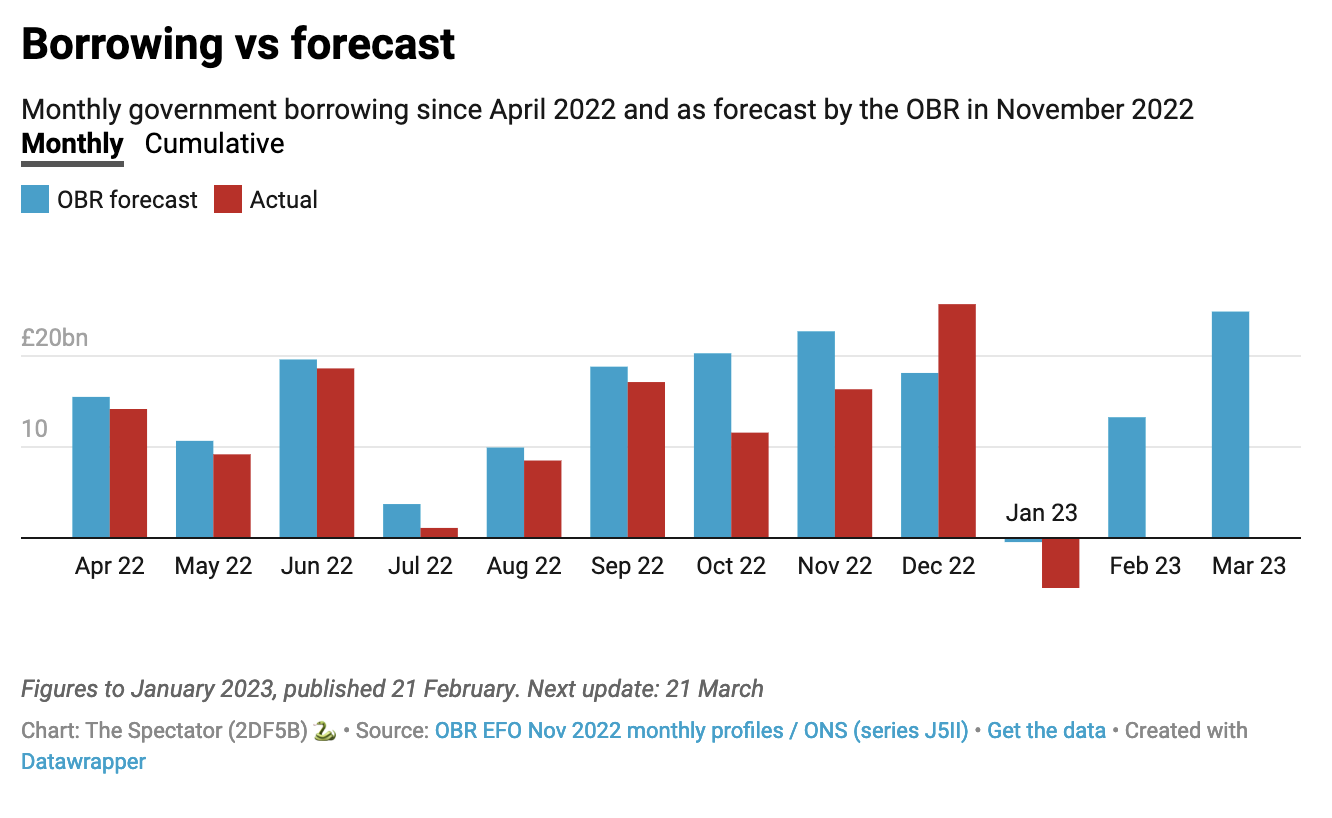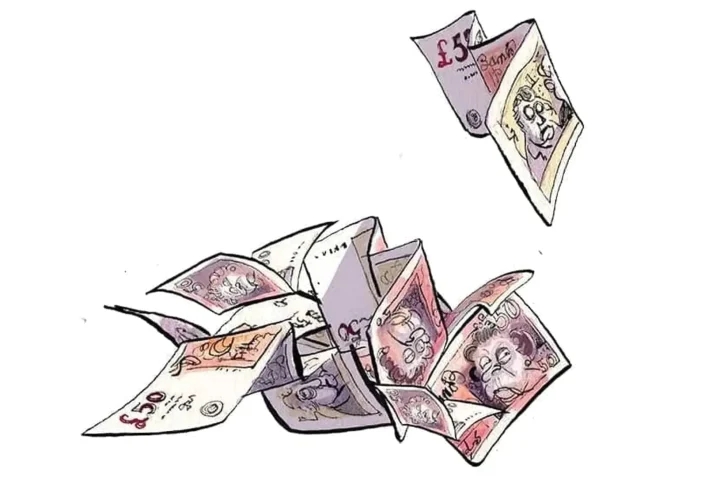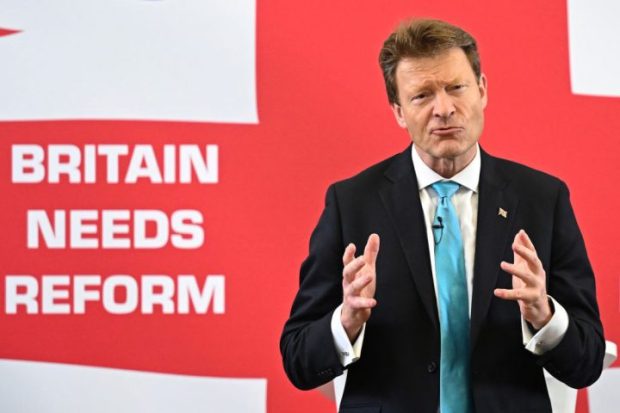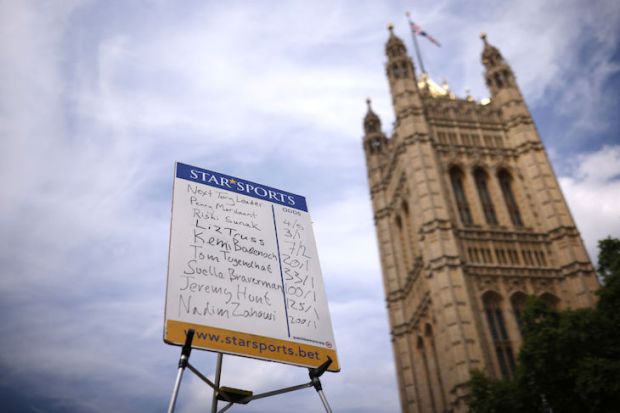There have been celebrations this morning about a government surplus of £5.4 billion last month, and people are even talking about a ‘windfall’ for Chancellor Jeremy Hunt in next month’s Budget. But all this shows is how conditioned we have become to appalling economic news – and that we will grab at anything which seems to indicate a shaft of light.

Nevertheless, any talk of a government ‘surplus’ masks the very real problem the government still has
While any surplus is to be welcomed – and last month’s borrowing figures are far better than the Office for Budget Responsibility predicted – we would be...
Already a subscriber? Log in
Subscribe for just $2 a week
Try a month of The Spectator Australia absolutely free and without commitment. Not only that but – if you choose to continue – you’ll pay just $2 a week for your first year.
- Unlimited access to spectator.com.au and app
- The weekly edition on the Spectator Australia app
- Spectator podcasts and newsletters
- Full access to spectator.co.uk





















Comments
Don't miss out
Join the conversation with other Spectator Australia readers. Subscribe to leave a comment.
SUBSCRIBEAlready a subscriber? Log in